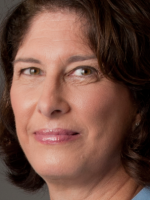With 11 days to go until the presidential election, a new NPR poll of likely voters in battleground states finds that Democrat Barack Obama is pulling away from Republican John McCain.
When Democrat Stan Greenberg and Republican Glen Bolger polled likely voters in the same swing states in September, just after the conventions, McCain had a 3-point lead. Now Obama has an eye-popping 11-point advantage.
"The race has broken open," Greenberg says. "Some big things have happened that have closed off the campaign that McCain could have run. He's lost independents, now losing them by 12 points. He was the one Republican this year who could have won Independents, and now he's losing them by double digits."
Both candidates are receiving the same levels of support from their own partisans: 90 percent of Democrats in the poll support Obama; 91 percent of Republicans support McCain. But there are fewer Republicans now than there were in 2004, when President Bush won these same states by 4 percentage points.
Bolger says the political environment is simply toxic for the GOP.
"The mood of the country — it's the most negative that we've ever seen in the history of public polling," he says, adding that he has "never seen the numbers this consistently low."
Economy As Game Changer
Both pollsters agree that the financial crisis has been the single most important event in the presidential race. Bolger likens it to "an economic 9/11."
"It has changed what everybody has talked about," he says.
Before the financial meltdown, Republicans were beginning to gain traction on issues such as offshore oil drilling — but no longer.
"There's no doubt that the financial crisis changed this campaign markedly and I think decisively," Greenberg says.
Mike Trebowski, a resident of Langhorne, Pa., is a registered Republican. He is among the 16 percent of likely voters in the NPR poll who are still undecided. He says he hasn't heard either candidate talk candidly enough about the meltdown on Wall Street.
"I feel that they're both being very defensive and not trying to rock any kind of boats," he says. "[They're] not coming out with saying, 'Hey, we should penalize, fine or throw somebody in jail that we can determine was responsible or knew about some of these loans."
Divided On Divided Government
There is one question in the poll where Republicans did better than Democrats, who probably will still control Congress after the election. Voters were asked whether it would be better to have a Democratic president working with the Democratic-controlled Congress to get things done, or to have a Republican president keeping Congress in check. Forty percent of those surveyed said a Republican president would be better; 32 percent chose a Democratic president.
"It just shows that voters do not trust Washington and they don't trust unchecked power by either party," Republican pollster Bolger says.
Dayna Smith is one of those voters. She is a registered nurse from Cincinnati who hasn't yet made up her mind.
"Overall, I would prefer a check, and that may be what ends up swinging my vote back to McCain," she says. "Because I don't want an all-Democratic everything, honestly."
But the results were different when the question about divided government was posed another way. When voters were asked whether they preferred for Obama to be president and work with a Democratic Congress or for McCain to be a check on the Democratic Congress, Obama narrowly won, 49 percent to 44 percent.
"There is some power in the argument that there needs to be balance in Washington," Democratic pollster Greenberg says. "[Voters] watched what happened in the six years in which Republicans controlled everything in Washington, and things went very badly for the country."
Voters may prefer generic Democrats to Republicans right now. But their continued preference for divided government is one reason McCain is spending more time talking about House Speaker Nancy Pelosi and Senate Majority Leader Harry Reid as he barnstorms the country in the last days of the campaign.
Copyright 2022 NPR. To see more, visit https://www.npr.org. 9(MDAzMjM2NDYzMDEyMzc1Njk5NjAxNzY3OQ001))







